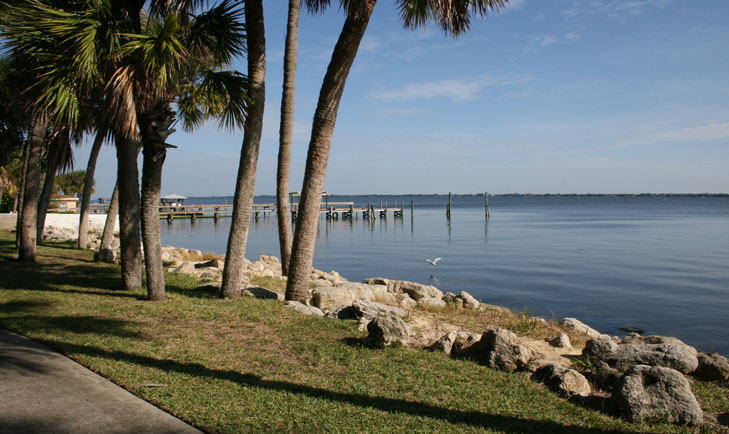
The summer rainy season ban on fertilizer use in the City of Melbourne goes into effect June 1. The ban lasts until September 30.
This regulation was enacted in order to keep harmful nutrients found in fertilizer from washing off lawns into storm drains and ultimately into the Indian River Lagoon during the rainy summer months.
In the summer months, heavy rains wash off any fertilizer applied to lawns and gardens before it can be absorbed by plants and grass. Instead of benefitting the plants, it ends up washing off lawns and ultimately into the Indian River Lagoon where it can fuel algae blooms and kill fish.
Homeowners are reminded that it is also illegal to blow grass clippings into streets or stormwater drains in the City of Melbourne at any time of the year. Instead, clippings should be blown back into yards or composted.
Penalties include a fine of $200 for violating either of these ordinances.
For More Information
- Call the Stormwater Hotline: (321) 608-7341.
How to Keep Your Yard Looking Great Without Fertilizer
Expert gardeners know that by making a few small changes to better adapt a lawn to Florida’s hot, humid climate, they only need to fertilize twice a year at most – in April and October. Follow these tips, and your yard and garden will look like the pros:
- Pump some iron. An application of iron keeps lawn looking green during the summer. Iron can be found at most garden centers along with macronutrients like potassium and magnesium that help keep lawns healthy.
- Get better plants. Plants adapted to Florida’s hot, humid climate need less water and fertilizer year-round. Ask your garden center or the Brevard County Extension office about how to go Florida-friendly, and you’ll reduce your water bill and pay less for fertilizer.
- Put your lawn on a diet. Replace a corner of your lawn with shrubs, small trees or an easy-to-maintain groundcover like Asiatic jasmine or perennial peanut. Expand your landscape beds a little bit at a time, and before you know it you’ll be devoting your weekends to relaxing instead of mowing, weeding and edging.
- Make pay dirt. Use your own compost to enrich your soil. It’s better than anything you can buy — and it’s free.
- Get more environmentally friendly yard care advice from these websites: